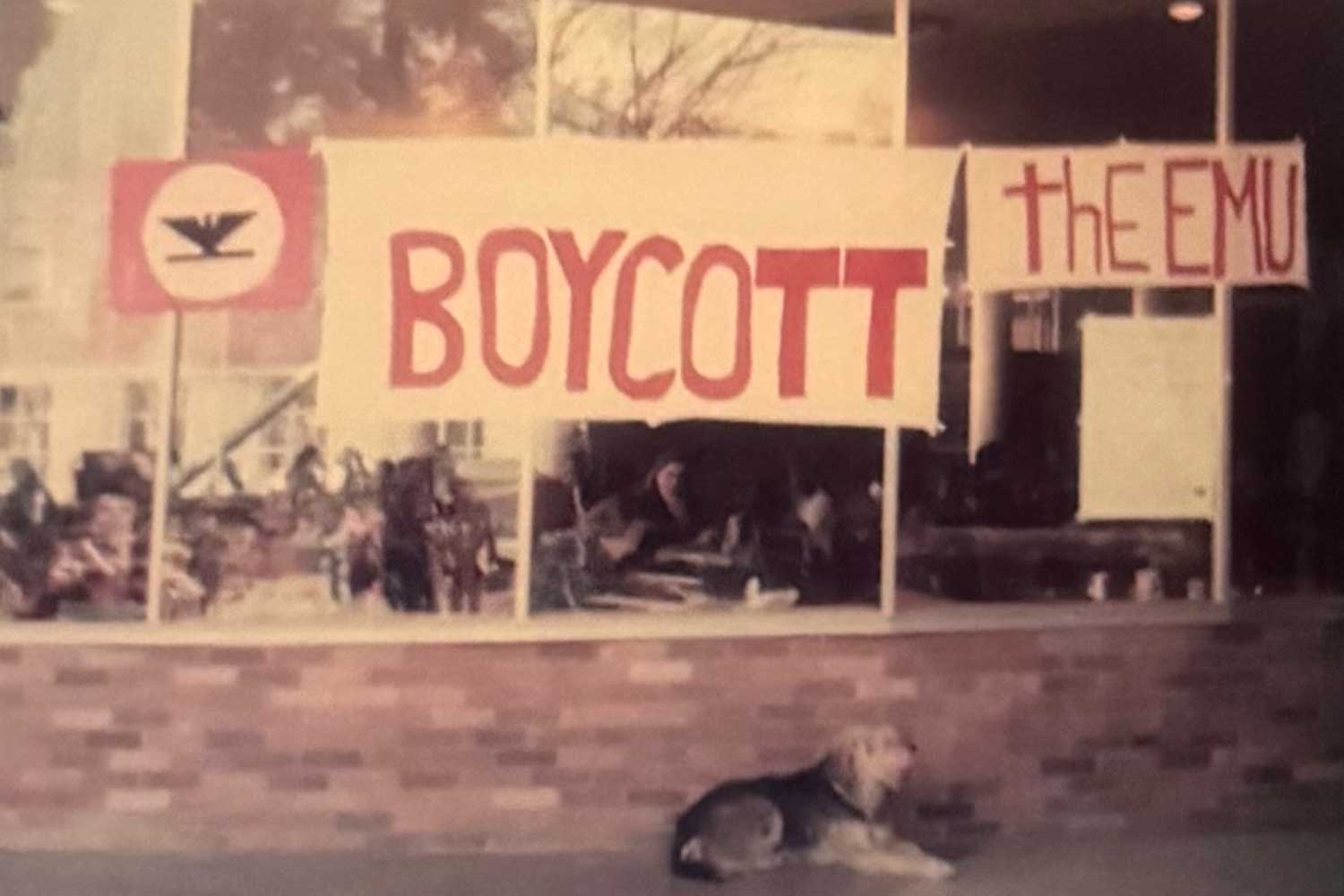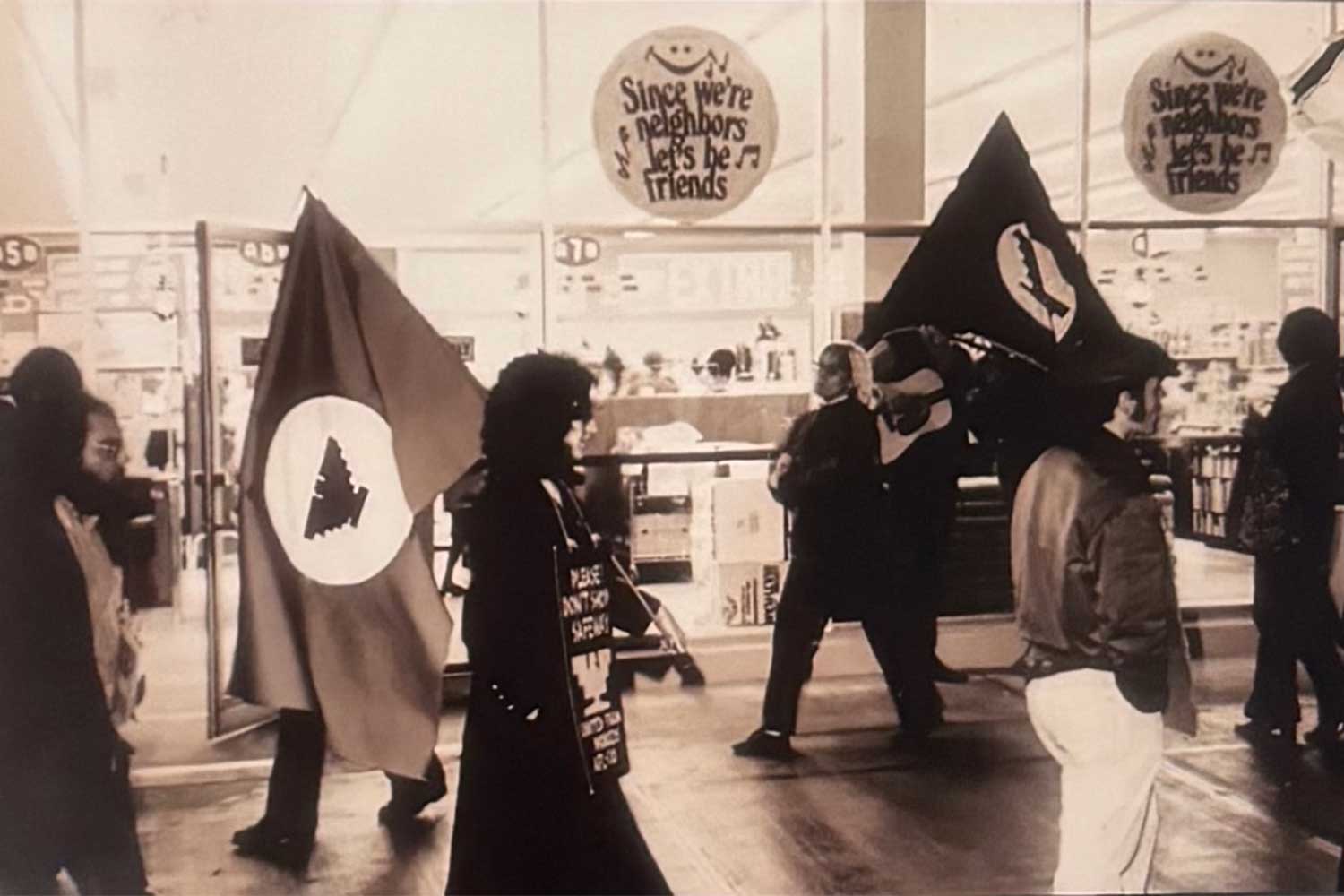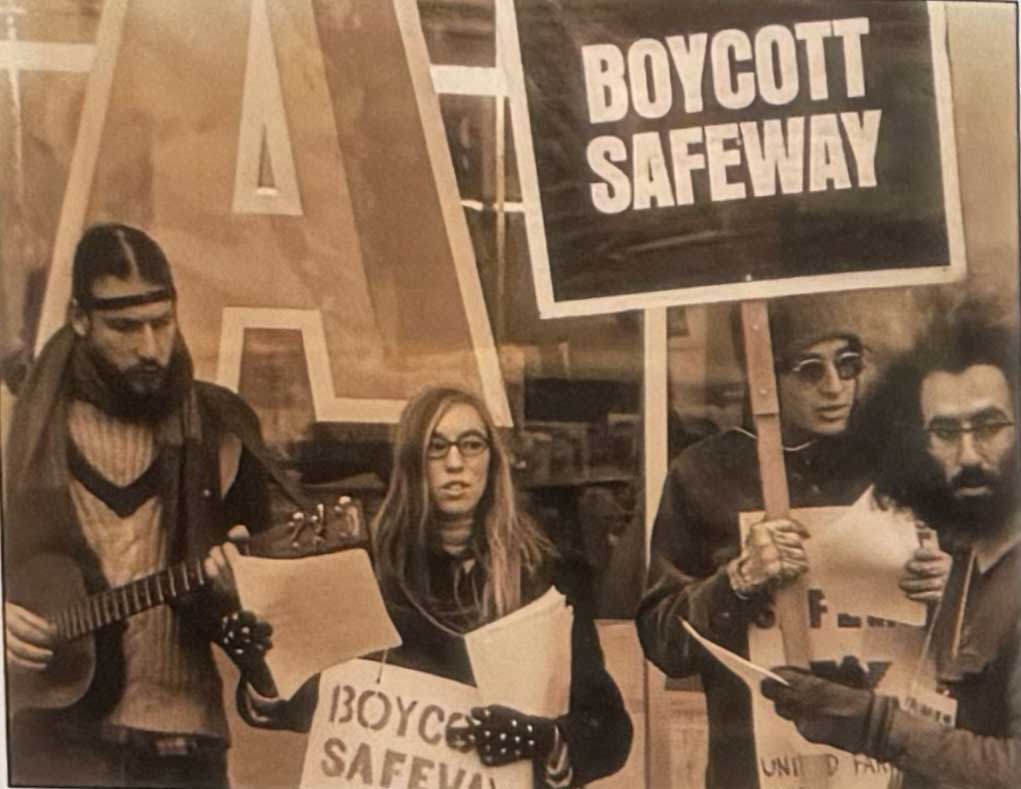As a place with thriving and well-established counterculture movements washed over from the ’60s, Eugene was a fertile hotspot for activism in the ‘70s.
Founded in 1972 by local activists Marion Phelan and Mel Kang, Eugene Friends of Farm Workers (EFFW) emerged from a blend of local activism and the national wave of advocacy in favor of migrant labor rights. EFFW fought for the dignity and rights of farm workers who were often subjected to deplorable working conditions.
From 1972 to 1976, the group engaged with churches, labor unions, local officials and community organizations to bring attention to the boycott efforts of the United Farm Workers (UFW) — the first and largest farm workers union in the U.S., founded by Cesar Chavez and Dolores Huerta, originally as the National Farm Workers Association.
Most notably known for setting up informational picket lines three days a week in collaboration and solidarity with the UFW boycott of Safeway — the largest carrier of non-union certified lettuce at the time — EFFW sent reports to UFW until it ended the national boycott in 1974.
EFFW handed out leaflets and protested outside Safeway for an entire year.
Former EFFW member and University of Oregon alumni Herb Everett helped lead the efforts to honor the UFW lettuce boycott on the University of Oregon campus as well. He says, “When they refused to honor our voices, we organized a boycott of the student union food services.”
A successful student referendum was proposed to then UO President Robert Clarke, but the university administration decided against it, threatening 10 UO students with student conduct code violations.

The on-campus boycott lasted a full year and discouraged students from buying food at the Erb Memorial Union (EMU) food stand in favor of the cheese, cucumber and lettuce “boycott sandwiches” made by EFFW in solidarity with farm workers. The boycott sandos were made out of the kitchen of Mama’s Home Fried Truckstop — a remodeled frat house that is currently home to Pegasus Pizza.
Former EFFW member and activist Kurt Wilcox says, “Perhaps the biggest legacy of Eugene Friends of Farm Workers’ efforts is the formation of Pineros Y Campesinos Unidos del Noroeste [PCUN]. They are the folks that built an actual farm workers union in Oregon.”
PCUN was formed in 1985 and is actively fighting to gain collective bargaining rights for farm workers across Oregon.
In 2014, Wilcox was appointed to the UO Board of Trustees, where he voted on a massive overhaul of the Student Conduct Code — something that he and Everett had direct experience with as students in 1974.

Labor activist and former EFFW member Nancy Bray says farm workers’ rights are an ongoing issue today. “It’s been an on and off struggle.”
Bray adds, “Bearing witness to the fact that there are poor people among us who have very difficult lives and asking people to help them in little ways like not buying lettuce or grapes” was the driving force for EFFW’s efforts in the ’70s.
EFFW celebrated its 50th Anniversary on April 10 at the Lane County History Museum, where it has an exhibit commemorating the historic strides the organization made in Eugene. The exhibit is dedicated to the memory of all members who worked to support the UFW boycotts.
When asked why this exhibit is so important, Wilcox says, “People have no idea that there were active migrant movements and boycotts or that there was a real active presence of farm workers right here in Eugene. Who living now knew that this ever happened?”
